Filter by
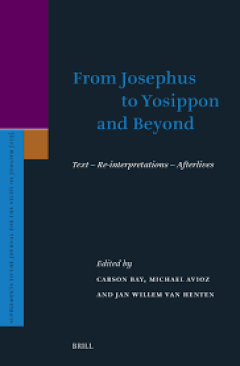
From Josephus to Yosippon and Beyond : Text – Re-interpretations – Afterl…
Two millennia ago, the Jewish priest-turned-general Flavius Josephus, captured by the emperor Vespasian in the middle of the Roman-Jewish War (66–70 CE), spent the last decades of his life in Rome writing several historiographical works in Greek. Josephus was eagerly read and used by Christian thinkers, but eventually his writings became the basis for the early-10th century Hebrew text called…
- Edition
- -
- ISBN/ISSN
- 978-90-04-69329-6
- Collation
- xx, 662 pp.
- Series Title
- Supplements to the Journal for the Study of Judaism, Volume: 215
- Call Number
- 260 JOS
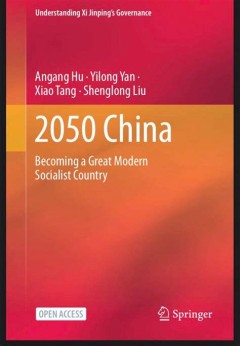
2050 China = Becoming a Great Modern Socialist Country
This book is arranged and developed around the theme of “2050 China,” it analyzes the factors and advantages of the Chinese road to socialist modernization, explores and summarizes the development goal and the basic logic of the socialist modernization of China, and further shows the general basis of the primary stage of socialism. According to the report delivered at the 19th Party Congres…
- Edition
- 1
- ISBN/ISSN
- 9789811598333
- Collation
- VI, 105 hlm; ill., lamp.,
- Series Title
- -
- Call Number
- -
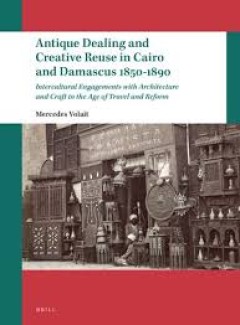
Antique Dealing and Creative Reuse in Cairo and Damascus 1850-1890: Intercult…
The commodification of Islamic antiques intensified in the late Ottoman Empire, an age of domestic reform and increased European interference following the Tanzimat (reorganisation) of 1839. Mercedes Volait examines the social life of typical objects moving from Cairo and Damascus to Paris, London, and beyond, uncovers the range of agencies and subjectivities involved in the trade of architectu…
- Edition
- Volume: 12
- ISBN/ISSN
- 9789004449886
- Collation
- -
- Series Title
- -
- Call Number
- -

The Business of Hope: Professional Fundraising in Neoliberal Canada : Profes…
This open access book contributes to research on the ascendance of neoliberalism in Canada through the vantage point of professional fundraising in the 1990s and 2000s. Fifty high-ranking fundraisers from across Canada were interviewed through 2008 and 2009 about changes they had witnessed since starting their careers. Fundraising as an occupation was burgeoning in this period in response to th…
- Edition
- 1
- ISBN/ISSN
- 9783031188374
- Collation
- XVII, 120 hlm; ill., lamp.,
- Series Title
- -
- Call Number
- -
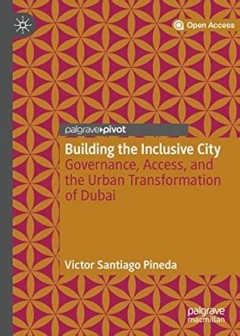
Building the Inclusive City : Governance, Access, and the Urban Transformatio…
This Open Access book is an anthropological urban study of the Emirate of Dubai, its institutions, and their evolution. It provides a contemporary history of disability in city planning from a non-Western perspective and explores the cultural context for its positioning. Three insights inform the author’s approach. First, disability research, much like other urban or social issues, must be si…
- Edition
- 1
- ISBN/ISSN
- 9783030329884
- Collation
- XVII, 169 hlm; ill., lamp.,
- Series Title
- -
- Call Number
- -
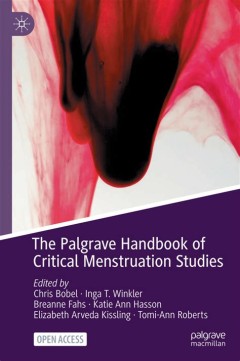
The Palgrave Handbook of Critical Menstruation Studies
This open access handbook, the first of its kind, provides a comprehensive and carefully curated multidisciplinary and genre-spanning view of the state of the field of Critical Menstruation Studies, opening up new directions in research and advocacy. It is animated by the central question: ‘“what new lines of inquiry are possible when we center our attention on menstrual health and politics…
- Edition
- 1
- ISBN/ISSN
- 9789811506147
- Collation
- L, 1037 hlm; ill., lamp.,
- Series Title
- -
- Call Number
- -

Animals in Stone: Indian Mammals Sculptured Through Time
The art history of South Asia covers a time span of roughly four and a half thousand years. During this period, a vast number of animal stone sculptures has been produced, ranging from the pre-historic period till today and covering a great variety of motifs and imagery in different regions and religious traditions. Even so, the number of studies devoted to these animal sculptures has remained …
- Edition
- Volume: 21
- ISBN/ISSN
- 978-90-47-44356-8
- Collation
- -
- Series Title
- -
- Call Number
- -
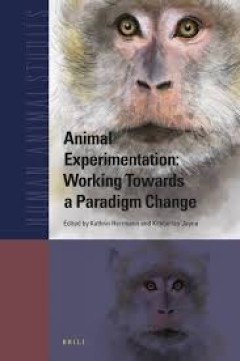
Animal Experimentation: Working Towards a Paradigm Change
Editors: Kathrin Herrmann and Kimberley Jayne Animal experimentation has been one of the most controversial areas of animal use, mainly due to the intentional harms inflicted upon animals for the sake of hoped-for benefits in humans. Despite this rationale for continued animal experimentation, shortcomings of this practice have become increasingly more apparent and well-documented. However, th…
- Edition
- Volume: 22
- ISBN/ISSN
- 978-90-04-39119-2
- Collation
- -
- Series Title
- -
- Call Number
- -

Ancient Manuscripts in Digital Culture: Visualisation, Data Mining, Communica…
Ancient Manuscripts in Digital Culture presents an overview of the digital turn in Ancient Jewish and Christian manuscripts visualisation, data mining and communication. Edited by David Hamidović, Claire Clivaz and Sarah Bowen Savant, it gathers together the contributions of seventeen scholars involved in Biblical, Early Jewish and Christian studies. The volume attests to the spreading of digi…
- Edition
- Volume: 3
- ISBN/ISSN
- 78-90-04-39929-7
- Collation
- -
- Series Title
- -
- Call Number
- -

Ancient Egypt, New Technology: The Present and Future of Computer Visualizati…
This volume of collected studies takes stock of most recent developments in Egyptology and the Digital Humanities, considering future directions for the application of new technologies in Egyptology. The book presents the results of an international conference held in 2019 at Indiana University – Bloomington, in which Egyptologists and digital humanists with interest in Egyptology gathered in…
- Edition
- Volume: 17
- ISBN/ISSN
- 978-90-04-50129-4
- Collation
- -
- Series Title
- -
- Call Number
- -
 Computer Science, Information & General Works
Computer Science, Information & General Works  Philosophy & Psychology
Philosophy & Psychology  Religion
Religion  Social Sciences
Social Sciences  Language
Language  Pure Science
Pure Science  Applied Sciences
Applied Sciences  Art & Recreation
Art & Recreation  Literature
Literature  History & Geography
History & Geography